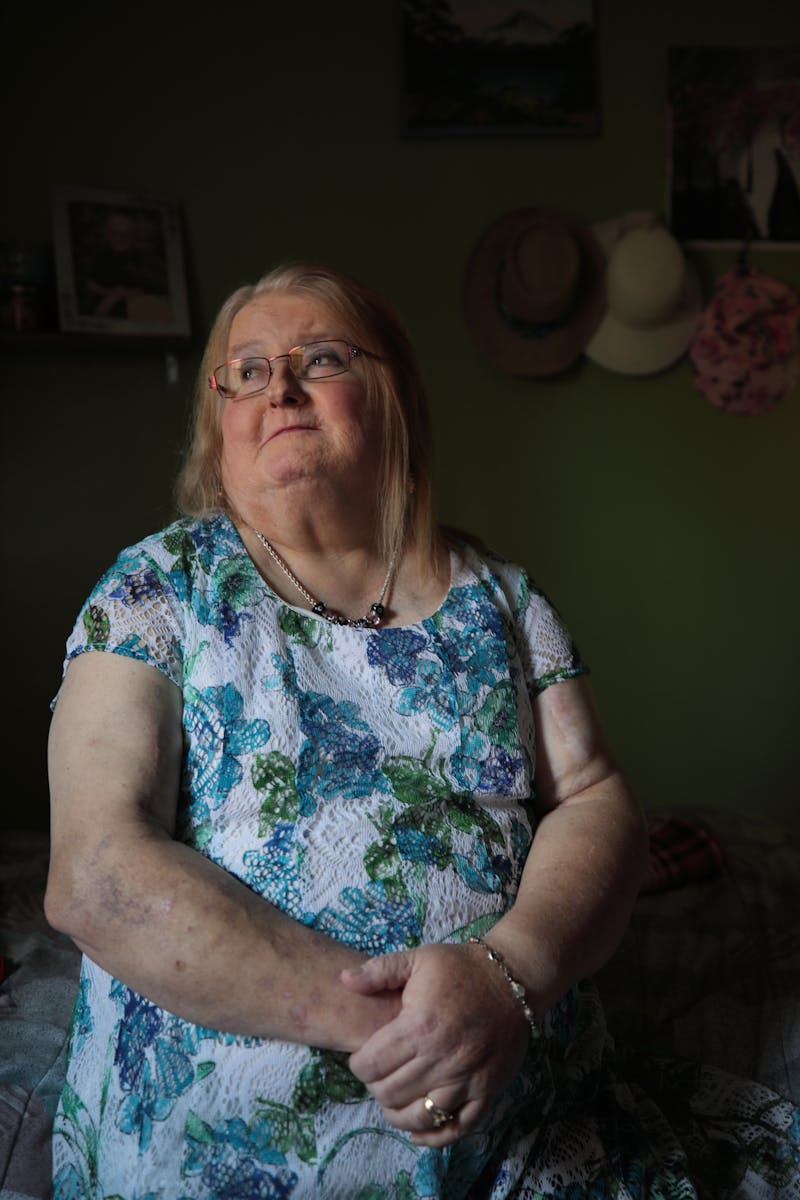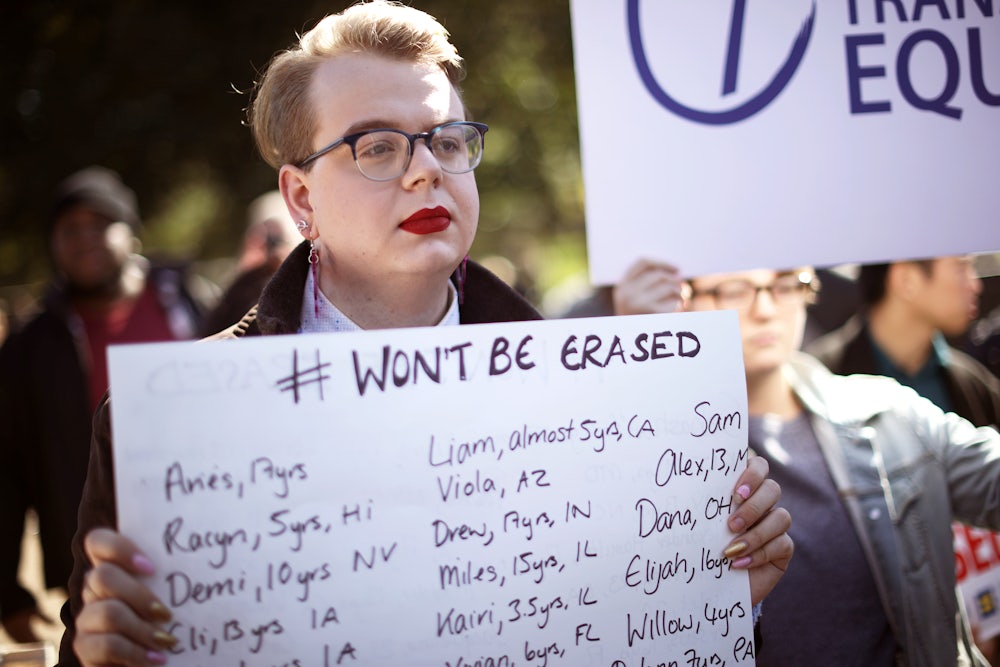Not long after the one-year anniversary of Brett Kavanaugh’s confirmation as a Supreme Court justice, he and his eight associates will devote one entire day to three cases which will determine the future of LGBTQ and women’s rights under the law. On October 8, the Court will hear oral arguments in three cases concerning protection from discrimination based on sex under Title VII of the Civil Rights Act of 1964. The justices’ decision could return American workplaces to the era of rotary phones, casual sexism, and closeted identity. Should these three workers lose, then all workers could be subject to the stereotypes harbored by their employers about how men and women should appear, behave, and identify. Getting fired for not conforming would again be completely legal.
“These are the single most important set of explicitly LGBT cases to ever reach the Supreme Court,” said Chase Strangio, a staff attorney at the ACLU, part of the team representing one of the plaintiffs who faced sex discrimination at work. “More than Lawrence, more than Obergefell, more than Masterpiece,” he added, citing prior cases concerning same-sex sex, same-sex marriage, and discrimination based on sexual orientation in public accommodations. That’s in part, said Strangio, because taken together, these cases encompass both sexual orientation and gender—they explicitly include all LGBTQ people.
Title VII is a powerful legal tool, especially in the majority of U.S. states without LGBT-inclusive anti-discrimination laws. While “you can still be fired for being LGBT in 26 states” has become a useful shorthand for advocates who want to convey how far LGBT rights have yet to come, it’s one that risks overlooking Title VII protections—even if those cases are difficult to win (which is especially true for trans people). This confusion about workers’ rights may be one reason why the Title VII cases haven’t ignited the same kind of attention as marriage equality did just a few years ago.
But on the morning of oral arguments in these cases, Housing Works, a group fighting AIDS and homelessness, is planning an action at the court, including civil disobedience. “Our transgender, non-binary and gender non-conforming brothers, sisters and siblings shouldn’t have to depend on this patchwork of state laws when their livelihoods and freedom to live their lives are on the line,” wrote Housing Works co-founder and CEO Charles King in an email to The New Republic.
The activists who come to the court on October 8 may be putting their bodies on the line just as so many women’s rights activists did to oppose Justice Kavanaugh’s confirmation. “Our national LGBTQIA family has been under a series of attacks under this current administration,” wrote Kiara St. James, co-founder and executive director of New York Transgender Advocacy Group, who are co-sponsoring the action. These communities, often conceived of as separate, are facing the same serious threats. This administration, said St. James, “has been exact and intentional in stripping many recently hard-won protections in the workplace and healthcare.”
The three Title VII cases before the High Court concern gay and trans people who faced discrimination at work, but they have much broader—and perhaps lesser-known—ramifications. “This is a defining moment in how sex is situated in the law,” Strangio said. “And the answer to that question is going to impact everyone.” In the case of Aimee Stephens, who is represented by the ACLU, that’s especially true.

Stephens’s former employer, Thomas Rost of Harris Funeral Homes, doesn’t contest that he fired her for being a transgender woman. In R.G. & G.R. Harris Funeral Homes Inc. v. Equal Employment Opportunity Commission, the third of the three Title VII cases currently before the Supreme Court, Rost and his legal team instead argue that sex-based discrimination protections apply in a very narrow way: to treat male and female employees in a complementary manner. Firing a transgender woman for being trans is legal, they claim, if an employer would also fire a transgender man for the same reason.
By that logic, if an employer fired a cisgender woman for not being stereotypically feminine, they could argue it’s not discrimination on the basis of sex if they would also fire a cisgender man for not being stereotypically masculine. Should the court decide in favor of Harris Funeral Homes, the employment protections for trans people under Title VII might no longer protect anyone’s gender nonconformity. The most retrograde gender norms could again rule the American workplace.
“Is that the world we want?” asked Strangio. “That’s the world the Trump administration is asking the Supreme Court to validate.”
Rost himself made this clear when questioned under oath. “I guess I’m just old-fashioned and I believe this is a funeral home and there’s a certain tradition that we want to keep there,” Rost said in a 2015 deposition. “We want—and I think the consumer out there, families believe that they—a male should look like a particular individual, like a man.”
Both lower courts agreed it was discrimination based on sex when Rost fired Stephens because she is a transgender woman. “You aren’t arguing over ‘it wasn’t really this discrimination, it’s that you are a bad worker,’” Strangio told me this month. “They are saying, straight up, we fired her because she’s trans.”
The legal group representing Rost, the Alliance Defending Freedom (ADF), who have been labeled a hate group by the Southern Poverty Law Center, specifically pursue high-profile cases meant to roll back LGBTQ rights. In league with Rost, ADF has shepherded this case to the Supreme Court, hoping to create a legal right for employers to discriminate against workers for being trans.
Rost and his team also wholesale reject the reality of trans peoples’ existence. In briefs filed ahead of oral arguments, it is obvious they do not recognize Stephens as a woman, even pointing out their refusal. “Stephens’s counsel indicates it is proper to refer to Stephens as ‘she’ and ‘a woman,’” they write in a footnote. But rather than maintain that accuracy, they continue, they “[try] to avoid use of pronouns and sex-specific terms when referring to Stephens.”
Rost and his discriminatory workplace rules also demonstrate that where there is anti-trans bias, there is sexism. Under oath, Rost admitted he explicitly reinforces gender roles in all his workers’ appearance. Specifically, in the year 2017, he was still forbidding his female funeral directors from wearing pants. At that time, Rost had no female funeral directors—though Stephens would have been one, were she not fired. As his counsel told a panel of judges at the 6th U.S. Circuit Court of Appeals, Rost believes that “sex is an immutable gift from God.”
With his case at last before the country’s highest court, Rost is portraying himself as a victim of the Equal Employment Opportunity Commission. “Now, my family’s livelihood and our legacy hang in the balance before the Supreme Court,” Rost wrote in a Washington Post op-ed. But Rost and ADF were the ones to appeal to the Supreme Court after the Sixth Circuit affirmed Stephens’ rights. They are the ones positioning Rost’s funeral home as the next Masterpiece Cakeshop, the Supreme Court case ADF hoped would grant private businesses legal protections to refuse patrons based on sexual orientation.
In an ADF-produced video posted soon after the Supreme Court accepted Harris Funeral Homes, Stephens is never even named. Instead, she is referred to as “a male employee” who “approached Tom” and “insisted on dressing as a woman while working with grieving families.” Rost appears with his wife, choking back tears. ADF identifies him as someone who was “punished for following the law,” someone who is “caught up in this cultural windstorm” without mentioning that they, in fact, whipped it up and elevated Rost to that role. In the National Review, Rost’s ADF attorney explicitly linked their case to other trans-exclusionary cases across the country. They also claimed, borrowing a line from some trans-exclusionary feminists, that should Stephens prevail, “equal opportunities and bodily privacy protections for women and girls will be lost.”
It is ADF’s client who has already denied Stephens equal opportunity. Still, like their use of the term “bodily autonomy”, they are selectively borrowing from feminists. With trans-exclusionary feminists—those who believe there is a feminist basis for discrimination against transgender women—they specifically share the false presumption that when trans women gain or protect their rights, cis women lose. To that end, Rost’s side marshalled support from a small group called the Women’s Liberation Front. Their brief in support of Rost flat out calls Stephens a man, claiming she “wanted to wear a skirt” to express a “gender ideology,” one which would “erase” women. They erase Stephens herself to make this claim.
It’s been six years since Aimee Stephens faced the decision, would she sue her boss for discrimination? She consulted with her wife, she told me in late August, and her spouse supported her legal challenge. Stephens said she also already knew what she needed to do. “It was far too important,” said Stephens, “not just for me, but for everybody like me.” In three weeks, she will be at the Supreme Court, perhaps surrounded by some of those people like her, women and workers both.
The stakes in this case would be high under any administration, but they are now, with the two new justices appointed by President Trump, only more so. Reversing a Supreme Court decision is no small thing. Even if Democrats retake the White House after the 2020 election, and they regain majority control of the Senate, and they are given opportunity to appoint Supreme Court justices, Title VII cases don’t come along very often. It could be years before another case arose that would allow for a challenge—and it would first have to travel through lower courts now stacked with Trump appointees. It’s also important to remember that it wasn’t until the Obama administration that any president even said the word “transgender.” There are still liberal pundits out there who claim trans rights are a “boutique issue” that cost Democrats the presidency.
To Stephens, there is nothing small about any of this, and not just because one of the cases is her own. “This decision has more far-reaching effects than anybody realizes at this point,” she said. “If they rule and agree with Mr. Trump, then we have only seen the tip of the iceberg.” These cases might radically redefine laws prohibiting discrimination based on sex for everyone in the United States. “It’s going to affect people who once thought they were safe before. I think they’re going to find out they aren’t safe from anything anymore.”
